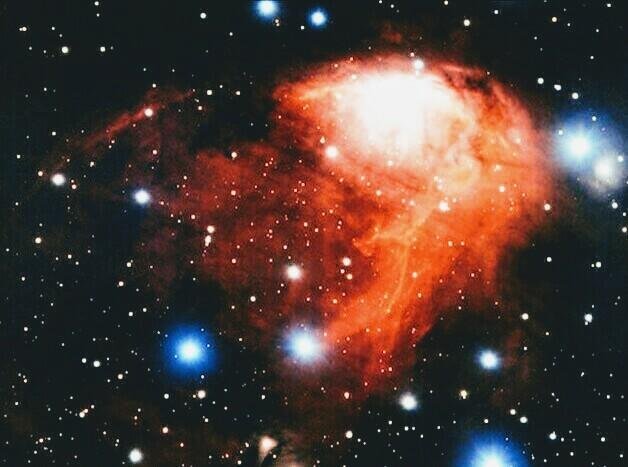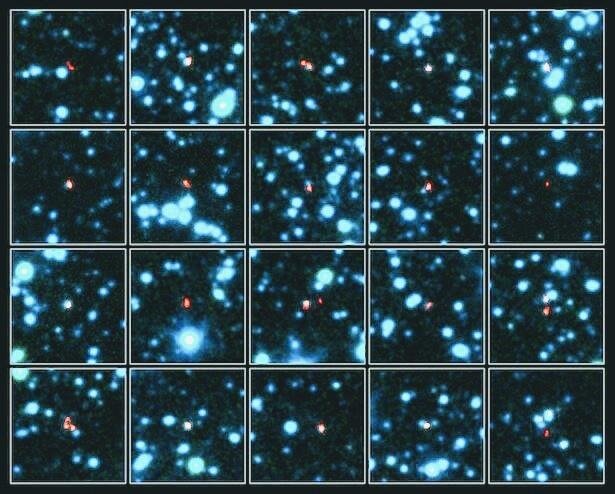
History of the birth of the most numerous and rapid stars in the universe takes place in galaxies that contain a lot of dust. However, the dust is overwhelming and obstructs the view, so it is very difficult to know where it is by using a regular telescope. For more than 10 years, astronauts have sought to thoroughly investigate the young galaxies there, all of which have spawned so many stars in a very short time. just four weeks in action, special telescope ALMA managed to find 100 such galaxies. That number exceeds that can be found all other telescopes, You see the picture below.

The galaxies that give birth to stars are very fast in a very short time. To see the galaxy above from its dusty and foggy surroundings, astronauts must use telescopes capable of seeing certain types of light that can penetrate the thick fog. One of them damages the ALMA telescope***.
 )
)One of the properties of light is that it behaves like a wave. Different light, too big waves. The wavelength is called the wavelength. The wavelength is measured from the top of one wave to the peak of the next wave. Radio waves, visible light visible to the eye, and microwaves are examples of light waves. ALMA sees the universe in radio waves, which have a wavelength of about 1 millimeter. These radio waves can penetrate the thick fog that obstructs the direct eye sight without using tools to see the galaxies.
some of the galaxies are believed to have given birth to thousands of times more stars than our Galactic birth, Of course this will destroy themselves. However, the results of all ALMA reconnaissance explains that the galaxies that seem to be suicide were actually a collection of small galaxies that gave birth to stars at normal speeds.
Very interesting facts Interesting
Radio waves are the longest wave type of light. The wavelength can be less than 1 centimeter, but there is also a longer than the football field.